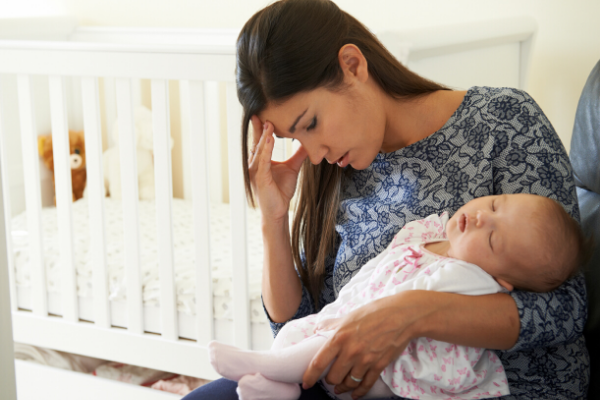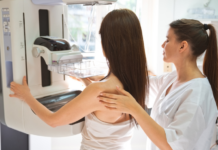If someone asked what the most common complication of childbirth was, what would you say? Diabetes? Preeclampsia? Nope. Guess again. Believe it or not, the number one complication related to childbearing is a mental health disorder. Yes, you read that right. The reality is 1 in 7 moms (some statistics suggest it is 1 in 5) will experience a postpartum mood or anxiety disorder such as Anxiety, Depression, Obsessive-Compulsive Disorder (OCD), Postpartum Post-Traumatic Stress Disorder (PPTSD), Bipolar Disorder, or Psychosis.
And although experiencing a postpartum mood or anxiety disorder is super common, it is not normal. Just as having high blood pressure is common but not normal. And mental health, just like physical health, shouldn’t be ignored. It is okay not to be okay. And speaking up or asking for help may be the bravest thing you can do.
Here are some symptoms highlighting the most common Postpartum Mood and Anxiety Disorders:
Anxiety Symptoms
- agitated
- inability to sit still
- excessive concern about baby’s or own health
- high alert
- appetite changes
- sleep disturbances
- constant worry
- racing thoughts
- shortness of breath
- heart palpitations
Depression Symptoms
- sadness, crying
- unexplained physical complaints
- suicidal thoughts
- appetite changes
- sleep disturbances
- poor concentration/focus
- irritability and anger
- hopeless and helpless
- guilt and shame
Obsessive-Compulsive Disorder (OCD) Symptoms
- intrusive/unwanted repetitive thoughts (usually of harm coming to the baby)
- horrified by thoughts
- tremendous guilt and shame (particularly if thoughts are about mom causing harm to the baby)
- moms engage in behaviors to avoid harm or minimize triggers
(*thoughts DO NOT equal action)
Bipolar Symptoms
Bipolar I (at least one-lifetime episode of mania)
- elevated mood (euphoria or agitation)
- decreased need for sleep
- racing thoughts
- increased productivity
- pressured speech
- increased energy
Bipolar II (one or more major depressive episodes with one or more episodes of hypomania- less pronounced mania)
- one or more episodes of Major depressive episode
- one or more episodes of hypomania (less pronounced mania)
- a distinct period of persistently elevated, expansive, or irritable mood
Postpartum Post-Traumatic Stress Disorder (PPTSD) Symptoms
- re-experiencing the traumatic event (flashbacks, dreams, spontaneous memories)
- avoidance of triggers
- isolation from family & friends
- “emotional numbing”
- hyperarousal/hypervigilance
- persistent and distorted sense of blame
- diminished interest in activities
- inability to remember key aspects of events
- negative thoughts and mood
Psychosis Symptoms
- delusions (e.g., baby is possessed)
- hallucinations (seeing someone else’s face instead of baby’s face, hearing voices)
- insomnia
- confusion/disorientation
- rapid mood swings
- waxing and waning (can appear and feel normal for stretches of time)
(*Psychosis is considered a medical emergency. Seek help immediately)
If you feel yourself struggling as a mom or new mom, please visit Postpartum Support International for a list of resources and trained professionals in your area, or you can reference the Fairfield County Mom roundup of local support services.

























